#snicketverse
Text
The one detail in Penultimate Peril that I will never, ever get over is that Lemony Snicket smokes. He shows up and offers to take away the Baudelaires, and he's smoking a cigarette.
All through the series, fire is the ultimate Bad Thing. The good guys are firefighters and the bad guys are firestarters. Arson is the worst crime. And the Baudelaires' descent into moral ambiguity is shown through them starting multiple fires.
Lemony Snicket might as well be the poster boy for VFD. He was raised in it since infancy. He lost Beatrice because of the consequences of being a volunteer. He has been on the lam for at least fifteen years because of his dedication to it. He lost both of his siblings to it. There are plenty of people in the series who question VFD and its motives, but for all it's done to hurt him, Snicket is very loyal. He does point out some flaws, but not as many as you'd expect.
And yet Lemony smokes. Lemony starts fires every day to feed his own addiction. He carries a lighter or matches with him at all times, just like the villains do. He regularly engages in a massive fire hazard. He says himself that a man who smokes cigarettes is somewhere in between wicked and noble. I want to know how someone so deep in VFD even started smoking.
I think the one thing I am the saltiest about Netflix not including is that. Truly Lemony being a smoker is everything to me.
528 notes
·
View notes
Text
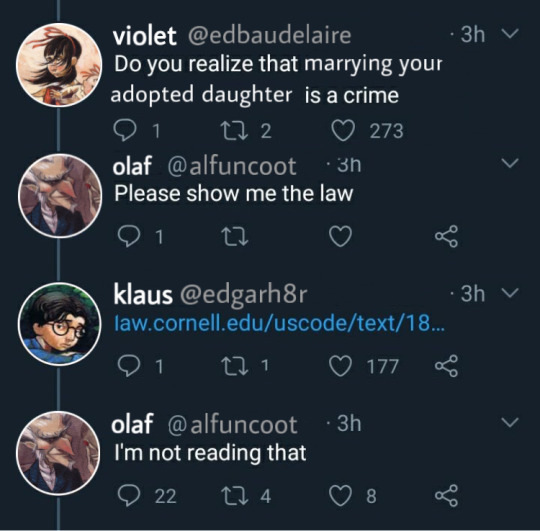
shoutout to @biooshocker for putting this into my head
#asoue#lemony snicket#snicketverse#asoue books#snicket#a series of unfortunate events#baudelaire#asoue netflix#violet baudelaire#count olaf#klaus baudelaire
2K notes
·
View notes
Text
i feel like yet another reason why count olaf is an interesting villain is bc he is so fucking...unwell.
like, they never once pretend he isn't an absolute mess. that's like. his entire character.
bc i dunno about yall but sometimes i get bored with organized, clean, proper villains. villains that have their shit together are so much less funny than villains that are very obviously at their lowest and will make it everyone else's problem. count olaf was my first experience of that kind of villain, and oh boy, he's a good example of that entire genre of character.
the fact that his plans and schemes suck and never really work out and lead to him having to improvise his way out? that's way funnier to watch than him actually succeeding.
and it's way more interesting that he's bitter and angry and irrational about his trauma, than villains who are given a tragic backstory and then immediately redeemed because of that.
maybe i'm just a sucker for tragedy (isn't every asoue fan?), but i personally love watching him regress into seeking approval the second his mentors show up, or seeing him have that small moment of false hope when he doesn't shoot the harpoon gun, only for it to be immediately tainted by dewey's death. i love it when we get to see just how human he is by seeing just how unwell he is.
i love it when he's sooo messed up tbh. bbygirl i love u for ur tragedy and comedy.
#this is probably incomprehensible huh#i just like that hes a dirty messy mentally ill freak and i like that hes at his lowest at all times.#asoue#a series of unfortunate events#lemony snicket#snicketverse#count olaf#fritz rambles too much
1K notes
·
View notes
Text
Is Lemony's Kind Editor in the Netflix series?
Throughout the Netflix series, Lemony has used one of his infamous literary devices which I did not notice until rewatching it for the billionth time, when I was working on The Complete Works of Contradictory Logic in ASOUE. More on that to come.
Lemony uses a rather basic device which, I believe, can actually have an ENTIRELY radical new view on the show: Lemony speaks to the camera in the second person.
This just means he uses the pronouns 'you' and 'your', etc, when talking directly to camera.
e.g. TMM: "You could pretend the Duchess of Winnipeg had arrived, and had come to throw the Baudelaires a pony party at her chateau."
However, the 'you' could refer to Lemony's Unnamed Kind Editor. There are some points which back this up:
The Kind Editor is someone who does not know the story of the Baudelaires, they only know Lemony. This is why Lemony is the one to tell them the story of ASOUE.
The Kind Editor is NOT a member of V.F.D. This is why Lemony has to explain [either himself or via other characters] different V.F.D-related things that a member would've already known.
This logic can lead to the following:
Lemony is talking to his Kind Editor, who is filming VIDEO evidence to be used in court when Lemony clears his name and the names of the Baudelaires.
This means that the characters do not physically appear in ASOUE, but rather Lemony just imagines them saying the same words before actually saying them himself. This carries on from the idea (@snicketstrange) that Lemony used the Baudelaires' notes from An Incomplete History (series) or A Series of Unfortunate Events (book canon).
In TCC, the Baudelaires discover the SAME THING filmed by the SAME PERSON - but for ATWQ. Hence the reference to 'Stain'd-by-the-Sea'...
So what's the point?
THEORY: Lemony is using typewritten and video evidence, as filmed by his Kind Editor, in order to clear the names of all 4 people; the Baudelaires and himself.
But who is this mysterious Kind Editor? Many have suggested it to be Moxie Mallahan, as she was only friends with Lemony and no-one else from V.F.D.
However, given the circumstances described, I now present an alternative solution: Beatrice Baudelaire II.
In TBL, Beatrice II is 10 years old, capable of handling a camera. It provides an uncle-niece bonding opportunity for Lemony, and Beatrice gets to know the story of her adoptive parents (from her biological uncle).
Lemony is Beatrice's only hope of finding the Baudelaires, and Beatrice is Lemony's only hope of clearing the Baudelaires' names, as Lemony knows 100% that Beatrice is not an enemy or a spy of any kind.
¬ Th3r3534rch1ngr4ph, Unfortunate Theorist/Snicketologist
#asoue#vfd#lemony snicket#a series of unfortunate events#snicketverse#asoue netflix#theory#kind editor#beatrice baudelaire#beatrice baudelaire ii#tbl#the beatrice letters#an incomplete history#duchess of winnipeg#duchess r#duchess ramona#ramona quimby
134 notes
·
View notes
Text

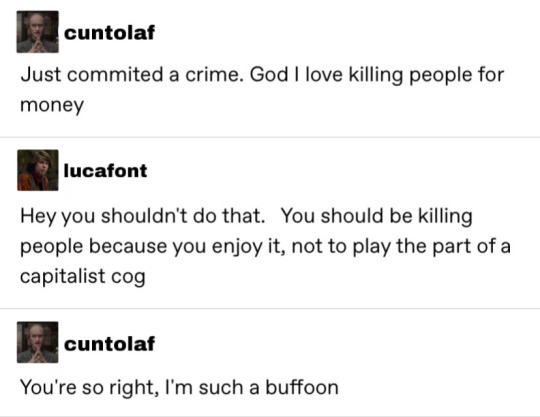







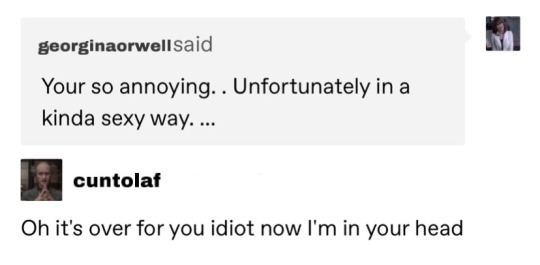
asoue text posts (part 2 is up check the tag)
#also making this made me realise#o lucafont is an anagram of count olaf#asoue text posts#asoue#a series of unfortunate events#snicketverse#lemony snicket#count olaf#esme squalor#beatrice baudelaire#shirley st ives#georgina orwell#lucafont#henchperson of indeterminate gender#woo i’m famous
462 notes
·
View notes
Text
there’s something about sibling relationships in asoue/atwq that is just,,, unique, for lack of a better word. or maybe wholesome. because most siblings in the snicketverse are like,,, in threes. the snickets. the baudelaires. the denouments. the quagmires. hell, even the white-faced women. it probably means something. i’m too tired too figure out what. it’s just something about them. like i could maybe analyse them tomorrow when i’ve had a good night’s sleep but for now have some of my ramblings.
#asoue#atwq#a series of unfortunate events#all the wrong questions#snicketverse#lemony snicket#kit snicket#jacques snicket#frank denouement#ernest denouement#dewey denouement#violet baudelaire#klaus baudelaire#sunny baudelaire#duncan quagmire#isadora quagmire#quigley quagmire#quagmire triplets#misspelled half the names here#too many times for my comfort
85 notes
·
View notes
Text
Hc that older Sunny Baudelaire is not trusted with pens bc any time she uses one she bites it and the ink spills EVERYWHERE.
#asoue#sunny baudelaire hcs#sunny baudelaire#a series of unfortunate events#asoue hcs#maggie this may or may not be inspired by you 🙃🫢🫨#a series of unfortunate events hcs#asoue headcanons#a series of unfortunate events headcanons#soue#series of unfortunate events#tsoue#snicketverse
30 notes
·
View notes
Text
it’s never stated what age jacques is when he does the cow disguise but i like to imagine it’s when he’s a teen, at the same time as atwq, so when lemony is thinking forlornly about his siblings, jacques is in a field standing very very still, eyeing the nearest tractor.
160 notes
·
View notes
Text
Lemony posting
C-C-COMING AT YOU LIVE FROM STAINED BY THE SEA.. ITS LEMONY!

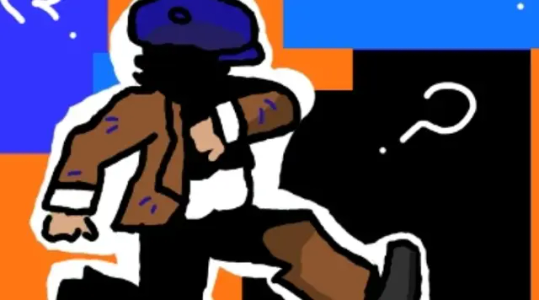

#asoue#atwq#lemony snicket#snicketverse#all the wrong questions#I should probs finish explaining my au#before I forget and start just lemony posting#on that note#I LOVE YOU LEMONY#if he has no fans i am dead#silly goofers#vfd#Coming at u live from stained by the sea
36 notes
·
View notes
Video
youtube
INTO THE SNICKETVERSE | A Series Of Unfortunate Events DEEP dive!
Come along with Magical Molly for an excessive and OBSESSIVE exploration into all things Lemony Snicket!
#asoue#a series of unfortunate events#lemony snicket#all the wrong questions#snicketverse#count olaf#violet baudelaire#klaus baudelaire#sunny baudelaire#kit snicket#beatrice baudelaire#ellington feint#moxie mallahan
130 notes
·
View notes
Text
I just realized how unique it is that A Series of Unfortunate Events is able to make Violet feel responsible for the well-being of her siblings and like it is her duty to protect and take care of them without at all forcing her into the archetype of mother. The entire "You are the eldest Baudelaire" speech is genius in how it ensures that she can have that guardian role in her without being motherly. It is her duty as an eldest sibling, regardless of gender, not her duty as a woman. I just really appreciate that. Violet Baudelaire's entire characterization is a win against sexism and female stereotypes, and because I grew up with it I didn't even realize how notable that was.
Anyway thank you to @jeppyposting for accidentally sparking this realization
97 notes
·
View notes
Photo
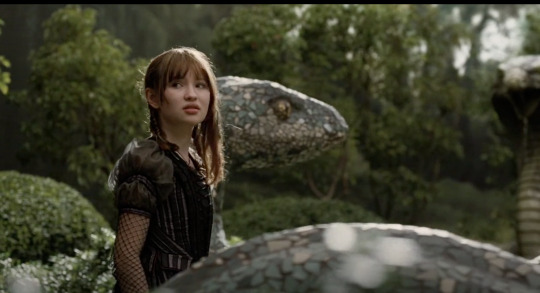
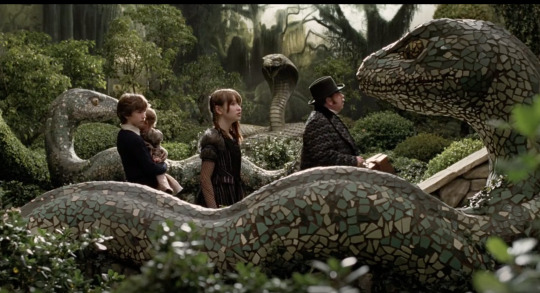

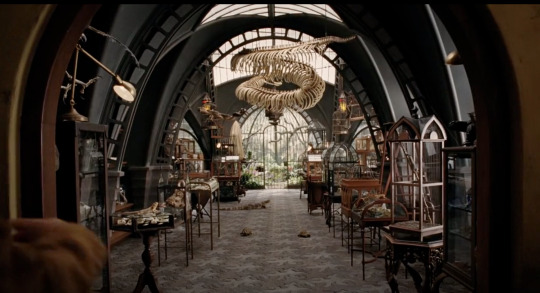
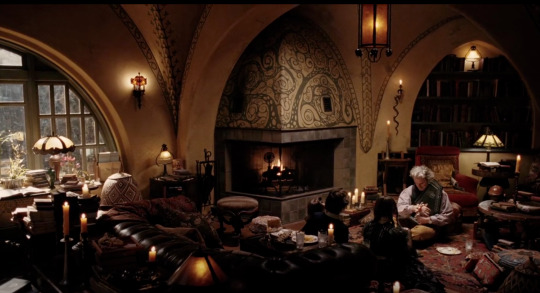
The asoue movie went SO HARD with the set design for monty’s house only for them to spend a total of 7 minutes there <//3 yearning for how cool the asoue series couldve been if it was in the style of the movie,,, sobs and cries,, its BEAUTIFUL
1K notes
·
View notes
Text
genuinely cannot believe there's ppl out there that don't think the snicketverse is amazing and cool,,,
like sorry you don't think teaching kids stuff like "weird people can be awesome and cool", "good people can make mistakes", "adults can be wrong", "people can be romantically in love with people of the same gender, and that's completely normal", "some people are neither male nor female, and gender doesn't matter half as much as you think it does", "bad and good people alike can take a turn for the better or the worse"
and tackling subjects like morality, ends vs. means ('it's a wicked thing to do, for a noble cause'), the importance of seeking out knowledge, the affect trauma can have on a person, not judging a book by its cover, etc.
AND all of that while still being a comedic, educational, interesting and strange in the loveliest of ways fictional universe filled with stories begging to be told????
so yeah im sorry if you just dont find all of that awesome and cool?? lmao??
#sorry. i love this silly little universe#you will tear it away from my cold dead hands ok#asoue#a series of unfortunate events#atwq#all the wrong questions#snicketverse#lemony snicket#daniel handler#literature#books
838 notes
·
View notes
Text
Is Klaus' legal logic of The Bad Beginning sensible?
* Joint Theory: @unfortunatetheorist with @snicketstrange *
Klaus's speech to the audience during the events of The Bad Beginning had a carefully thought-out structure, anchored in deeply rooted legal, but more so ethical, principles. In defence of his sister, who was forced into a marriage, Klaus appears to have adopted a multifaceted approach to challenge the marriage's validity.
Firstly, John Locke.
John Locke was one of the first people to suggest that humans have natural rights. He also wrote a book about this called the 'Two Treatises of Government'.
Klaus likely invoked John Locke's arguments on natural rights to contend that the marriage was not consensual and, therefore, violated his sister's fundamental rights to life and liberty. The idea that the bride must sign "with her own hand" is interpreted here not literally, but as an indicator of action "of her own free will," supported by Locke's principles.
Secondly, Thurgood Marshall.
Thurgood Marshall was the first black Supreme Court Justice of the USA, who fought for the rights of black citizens against Jim Crow's extremely racist ideologies.
His defence of the 14th Amendment may have been used by Klaus to argue that, in cases of ambiguity or doubt, the judge's decision should lean towards protecting the more vulnerable party. This point strengthens the point that, if there is doubt about the how valid Violet's consent is, the legal and ethical obligation is to invalidate the marriage. The 14th Amendment to the United States Constitution is crucial for establishing constitutional rights and consists of various clauses. The most relevant for Klaus's case is probably the Equal Protection Clause, which states that no state may "deny to any person within its jurisdiction the equal protection of the laws." Klaus may have leaned especially on this clause to argue that, in situations of uncertainty, i.e. his sister's forced marriage, the interpretation/application of the law should be done in a manner that protects (in this case) Violet. This would align with the principles of the 14th Amendment, using it for equal protection under the law to invalidate the marriage and protect his sister's rights.
Third, Ida B. Wells.
Ida B. Wells was, similar to Thurgood Marshall, an early civil rights campaigner, who campaigned for anti-lynching (a word which here means, opposing the brutally violent act known as lynching).
Klaus likely drew inspiration from Ida B. Wells to assert that everyone has the right to be heard and protected by authorities, regardless of their age or origin. This argument would serve to legitimize his own standing as his sister's defender in court, neutralizing any potential prejudice against him for being a child or, perhaps, belonging to a minority (he and his sisters are Jewish).
Moreover, the presence of a judge at the ceremony should not be viewed as merely a formality, but a control mechanism to ensure mutual consent, something that resonates strongly with Locke and Marshall's ideals about the role of government and law. Thus, if either of the spouses gave any evidence to the judge that the marriage was conducted under duress, the judge would be obligated to invalidate the marriage. Violet's chosen signal was to sign the document with her left hand instead of her right hand. As the judge explained, the marriage could be invalidated due to this discreet yet appropriate signal.
Lastly, the word "apocryphal" that Lemony uses to describe Klaus's argument suggests a non-conventional but insightful interpretation of the law, something that seems to echo Marshall's "doubtful insights" and Wells' "moral conviction." Instead of resorting to literalism ('literally' - with her own hand, i.e. Violet's dominant hand), Klaus's argument was much deeper and grounded, touching on the very essence of what legislation and the role of judges are. That's why Justice Strauss was so fascinated by the young boy's speech.
In summary, the historical references evidence that Klaus wove these diverse elements into a cohesive and compelling argument, utilising the legacy of these thinkers to question and, ideally, invalidate his sister Violet's forced marriage.
¬ Th3r3534rch1ngr4ph & @snicketstrange,
Unfortunate Theorists/Snicketologists
#asoue#asoue netflix#theory#vfd#a series of unfortunate events#lemony snicket#snicketverse#count olaf#thurgood marshall#ida b wells#john locke#legally snicket#Very Fatiguing Definition(s)#'My brother's defining words again' ¬ Kit Snicket
76 notes
·
View notes
Text
if you know don’t give it away, also i know all my followers have read it so i’m kinda hoping this breaches containment here
#cameron monologues#asoue#a series of unfortunate events#poll#lemony snicket#snicketverse#asoue netflix
330 notes
·
View notes
Text
Me, washing the dishes, while I imagine that I am the next guardian of the Baudelaires; I take care of them and show them an eccentric lifestyle, but I don't recognize Count Olaf and he kills me in the third chapter.

#a series of unfortunate events#asoue#klaus baudelaire#sunny baudelaire#violet baudelaire#lemony snicket#snicketverse#asoue memes#Lemony Snicket memes
922 notes
·
View notes